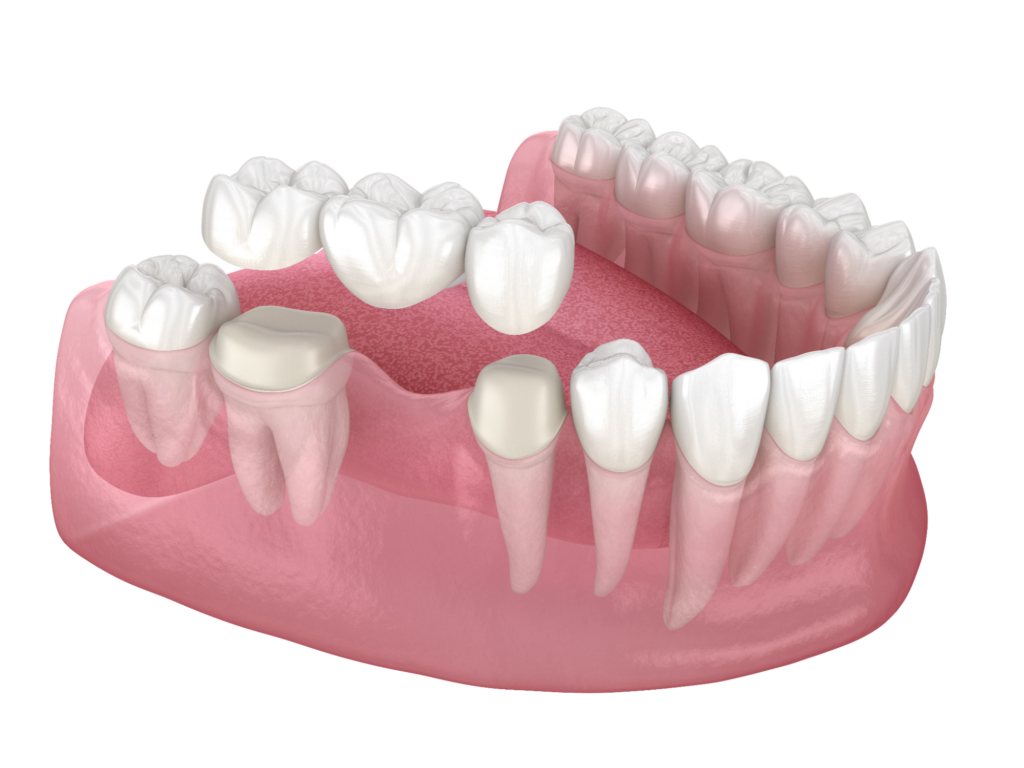Your wisdom teeth are found at the back of your mouth and are often called the third molars or the last adult teeth. They come out in your late teens to your early twenties. If your wisdom teeth come out incorrectly, or a partially erupted tooth never comes through, you may have impacted wisdom teeth. And in many of these cases, you may need your wisdom teeth extracted.
There are a few ways impaction can happen:
- Mesial impaction: This impacted wisdom teeth angles toward the front of the mouth.
- Vertical impaction: These impacted wisdom teeth are trapped under the gums but are in the correct position.
- Horizontal impaction: The impacted teeth are trapped in a horizontal position under the gums. In this position, the wisdom tooth pushes on the adjacent teeth.
Impacted wisdom teeth can cause symptoms like jaw pain, swelling in the jaw and gums and bad breath.
Jaw Pain
If your wisdom teeth come out the wrong way, or there is not enough space for them to come out, it can change how your other teeth bite. This change can be painful, and your jaw may feel stiff, making it hard to open or close your mouth.
The impacted wisdom teeth can also stress the temporomandibular (TMI) joint. This joint is like the hinge that opens and closes your mouth. This stress can also lead to sinus pain. Additionally, the pain in your jaw can radiate to nearby areas and cause earaches and headaches.
Related: Here’s How Beaumaris Dentist Can Help With Your Jaw Pain
Swelling Around The Jaw
Swelling around the jaw is expected when the gum tissue and jaw bone still cover the impacted wisdom tooth (hard tissue impaction). In this state, the pressure of the wisdom teeth on the adjacent teeth can cause discomfort. Wisdom teeth decay fast, and this decay can cause damage to other teeth adjacent to them. These cavities, in turn, can cause pulp infections, damaging blood vessels and nerves.
If you experience swelling around your jaw, you may want to consult with your dentist to remove impacted wisdom teeth.
Bad Breath and an Unpleasant Taste in Your Mouth
Halitosis(bad breath) is one of the more obvious symptoms of an impacted wisdom tooth. If you practise good oral hygiene and still have bad breath, you may have impacted wisdom teeth. This type of infection comes from bacteria that feed off the sugars in food stuck in the area around your impacted tooth. As these bacteria metabolise the food, they begin to produce sulphur which smells like rotten eggs. If not treated, it can lead to tooth decay.
If you experience a sudden gush of foul-tasting salty liquid in your mouth, it can mean the abscess where the infection broke.
Red, Swollen or Bleeding Gums
When your wisdom teeth start to erupt, it can cause your gums to become swollen and tender. Swollen gums appear red and tender in some areas, and the pain can make it difficult to clean your teeth. In this case, there is a risk you can develop pericoronitis, an inflammatory gum condition.
However, when your wisdom teeth are impacted, swelling in the gums can signify soft tissue impaction. A soft tissue impaction means the wisdom tooth has emerged from the jaw bone but failed to emerge from the gum line.
An impacted wisdom tooth may develop an infection because of deep decay. This decay creates a pocket of pus at the tooth’s root or gum called an abscess.
If your cheeks or neck are swollen, it can be due to the infection. If you have these symptoms, it’s advisable to seek medical help as soon as possible because an abscessed wisdom tooth can spread the infection to other parts of your body.
Related: 6 Unexpected Health Benefits of Taking Care of Your Gums
Difficulty Chewing or Opening the Mouth
When your wisdom teeth come through at the wrong angle, it can cause misalignment, causing you pain. This misalignment can make it difficult to open or close your mouth, and you may experience pain or discomfort while eating or biting.
Treating an Impacted Wisdom Teeth
If you experience these symptoms, you may have impacted wisdom teeth. You need to have them treated quickly to avoid any problems. The dentists will take an x-ray of your teeth to determine if you need a wisdom tooth extraction. Usually, if you have partially impacted wisdom teeth horizontally impacted or broken, you may need to have surgical removal of the molar teeth. Your dental practitioner can determine surgical removal versus retention of your wisdom teeth.
Do you need an oral surgeon to check your wisdom tooth? Contact us for wisdom teeth management.


